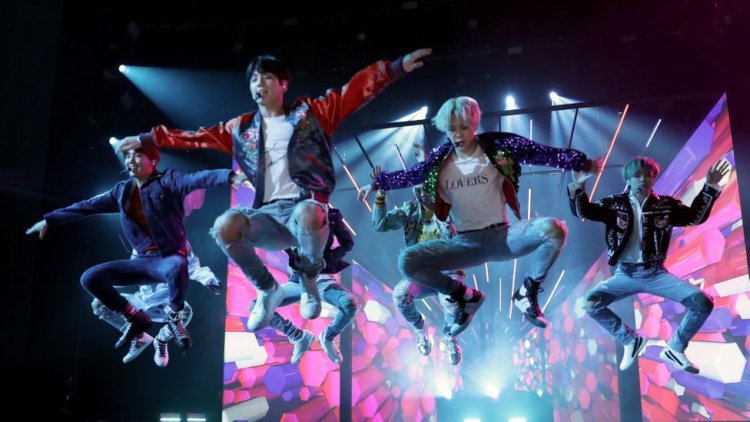Charting Pop's New Frontier How Culture Goes Global

Navigating Pop Music's Shifting Paradigm
The music industry is in flux. Streaming and social media have upended the traditional pop paradigm,
democratizing music creation and distribution. Aspiring artists no longer need a record label to reach
global audiences. Anyone with talent, determination, and an internet connection can share their music
worldwide.

This new landscape is challenging to navigate but rife with opportunity. Some tips for up-and-coming
artists:
-Build your brand. Establish a unique style and image.
visuals to accompany your music.
-Focus on your live show. Touring and performances are more important than ever. Put in the work to
develop an engaging live set. Play as many gigs as possible to expand your fanbase.
-Release new music consistently. Keep your fans engaged by dropping singles, EPs, remixes, and albums
on a regular schedule. Try releasing a new song every 4 to 6 weeks.
-Collaborate and network. Work with other artists, producers, and influencers. Play shows together.
Cross-promote to each other’s fans. Network in the local music scene and online. Partnerships can help
you reach new audiences.
-Consider a record label if the opportunity arises. Labels still provide resources like marketing,
tour support, and radio promotion. But only sign with a label if you can maintain control of your
creative vision and brand.
The pop landscape is wide open. With hard work, innovation, and a willingness to forge your own path,
you have a real shot at finding your place in the global music scene. The tools are there; now go out
and seize the opportunity.
Genre-Blending Pop's New Frontier
These days, pop music is a global melting pot of styles, sounds, and influences. Genre lines are blurring as artists blend musical traditions from around the world. This fusion of genres is creating pop's new frontier.
East Meets West
K-pop, the hugely popular music genre originating in South Korea, is gaining mainstream attention in Western markets. Groups like BTS and Blackpink have brought their high-energy pop, fashion-forward style, and dedicated fanbases to global audiences. At the same time, Western pop stars are incorporating K-pop's signature sounds, like synthesized beats and futuristic esthetics. This cross-pollination shows how pop music transcends geographic and cultural boundaries.
A Latin Explosion
The Latin music industry has also gone global. Stars like J Balvin, Bad Bunny, Ozuna, and Rosalía are making innovative pop that fuses traditional Latin genres like reggaeton, trap, and flamenco with electronic music, hip hop and more. Their edgy, danceable tracks topped charts worldwide, proving the global appeal of Latin pop. Meanwhile, non-Latin artists are capitalizing on Latin music’s popularity by collaborating with Latin stars or incorporating Latin-inspired beats and melodies into their own pop songs.
A World of Influence
Today's pop landscape reflects a wider range of global musical influences than ever before. Whether it’s the rise of Afrobeats from West Africa, India’s unique Bollywood pop, or the Middle Eastern-flavored pop of stars like Hamaki, pop music has become a fusion of cultures, traditions and sounds from every corner of the world. By blending genres, collaborating across borders, and sharing their music on a global scale, pop artists are charting exciting new territory and shaping the future of mainstream music. Pop’s new frontier knows no bounds.
The melding of musical genres, styles, and cultures in today’s pop scene is creating a vibrant new artistic space with unlimited creative possibilities. As pop music continues to evolve, these kinds of genre-bending fusions may well point the way to pop’s future.
The Rise of K-Pop and J-Pop on the World Stage
The rise of K-pop and J-pop on the global stage shows how culture can transcend borders in today’s world. These popular music genres from South Korea and Japan, respectively, have amassed huge followings outside of their native countries, demonstrating the power of the internet and social media to spread cultural influences far and wide.
K-pop, short for “Korean pop,” features flashy performances, catchy tunes, and polished groups of singers. Boy bands like BTS and EXO and girl groups such as BLACKPINK and TWICE have become international sensations, with music videos racking up billions of views on YouTube and songs that top charts around the world. Their popularity has fueled interest in other aspects of Korean culture, from food and fashion to television dramas.
Meanwhile, J-pop or “Japanese pop” has also grown a sizable global fanbase. Long-running groups like Arashi are cultural icons in Japan and other parts of Asia, and virtual pop stars like Hatsune Miku have taken the world by storm. Anime soundtracks frequently feature J-pop songs, exposing the genre to new audiences.
Asia’s entertainment industries were once focused inward, but K-pop and J-pop’s worldwide success has proven that music from other cultures can resonate universally. They signify an exciting new frontier as global citizens connect across borders through the music they enjoy. Pop culture has never spread so rapidly or on such a massive scale before - these genres are a glimpse of the globally connected world of the future.
By seamlessly blending elements from various cultures, K-pop and J-pop also reflect the hybridity of identities in today’s world. They demonstrate how cultural influences are increasingly transcending geographic boundaries -- a paradigm shift that is shaping the future of entertainment. Pop music is forging connections across the globe, one catchy tune at a time.

 Admin
Admin 









![Who Says a Ho Can't Change?! [photos]](https://gcheck.tv/uploads/images/202211/image_380x226_637ab5b11c1e6.jpg)